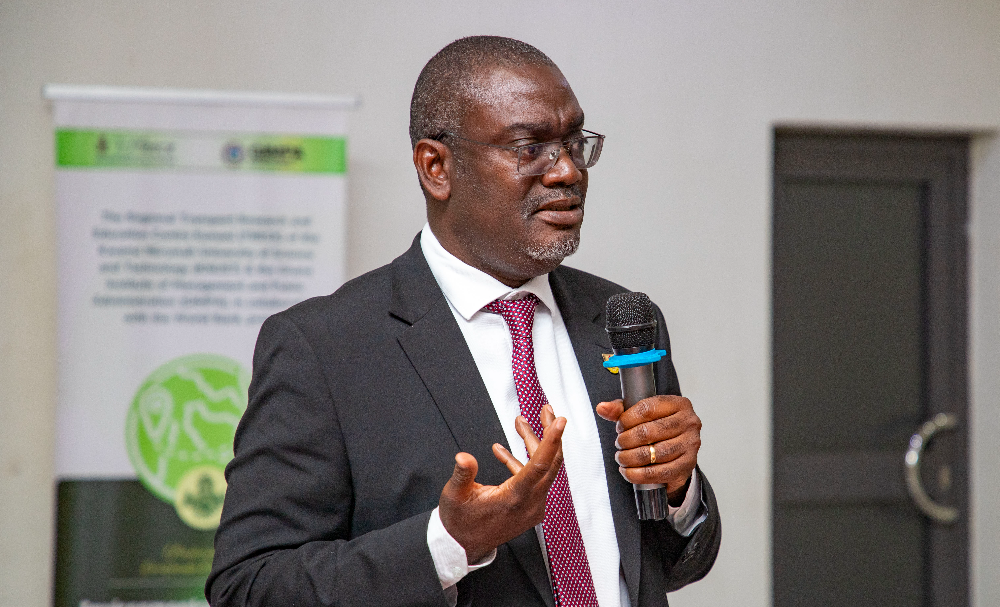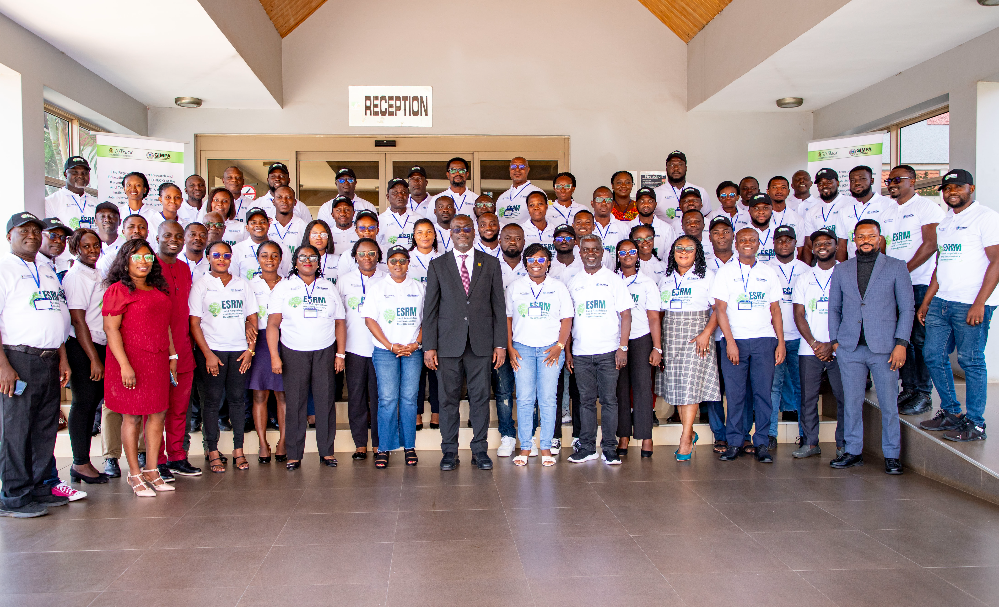Professor Kwabena Biritwum Nyarko, Provost of the College of Engineering at the Kwame Nkrumah University of Science and Technology (KNUST), has called on participants of a just-ended training programme on land acquisition and involuntary resettlement to leverage their new knowledge for transformative change within their institutions and communities.

Speaking at the closing ceremony of the course jointly organised by the Regional Transport Research and Education Centre Kumasi (TRECK), the Ghana Institute of Management and Public Administration (GIMPA), and the World Bank, Professor Nyarko urged participants to become champions of best practices in sustainable development.
"We have had excellent facilitators and presentations, but will we utilise the knowledge acquired?" Professor Nyarko asked. "We possess all the ideas; now we must act on them. We know what to do, but often, we don’t. Let the knowledge you've gained continuously inform your decisions and positively impact the communities you serve."
He further emphasised the urgency of applying practical solutions to persistent challenges.
"Our problems are always waiting for us; therefore, let’s employ real mechanisms to address them. At times, we cannot achieve this alone and must collaborate with NGOs. We are well-equipped possessing abundant resources and excellent human capital. You have acquired critical knowledge and skills; now go out there and be the change agents society needs."
The professional certificate course, the first of its kind in West Africa, offered practical training in managing development-induced land acquisition and involuntary resettlement.
It brought together professionals including project managers, consultants, regulators, and researchers.
Professor Samuel A. Andam-Akorful of TRECK highlighted the rationale behind the course, noting the need for development that is both responsible and sustainable.
“The World Bank has supported TRECK and GIMPA to build the capacities of our national agencies for sustainable development,” he said.
Dr. Paul Rex, Senior Consultant at GIMPA Training and Consultancy, said the programme seeks to spark change in how land acquisition and resettlement issues are addressed.
“When we conduct a tracer study in six years, we expect to see real transformation in practices and outcomes,” he noted.
Representing the World Bank, Mrs. Nneka Okereke described the course as historic.
“This is the first time in West Africa that a comprehensive course on land acquisition and involuntary resettlement has been held. Our partnership is not ending here; we are committed to continuing this capacity-building journey,” she said.
Mrs. Abena Apeaa Amoah of the Land Use and Spatial Planning Authority emphasised the importance of collaborative planning.
“Working on land is difficult and sensitive. We must involve stakeholders meaningfully. Planning in isolation doesn’t work,” she said.
Participants also shared reflections on the impact of the training. Mr. Derek Osei Tutu expressed gratitude for the opportunity and committed to transferring the knowledge to colleagues.
“We need to rethink how we approach compensation and deal with project-affected persons. This course has equipped us to do that,” he said.
The course covered seven modules, including legal frameworks, stakeholder engagement, compensation valuation, livelihood restoration, and a capstone project. It was delivered through face-to-face lectures, group work, and a field visit.
TRECK-KNUST is a World Bank-recognised African Centre of Excellence in Transport and Logistics, dedicated to research, training, and capacity building within the transport and development sectors.
| Story by: Edith Asravor (URO) | Photos by Michael Kwawu (URO) | |


















